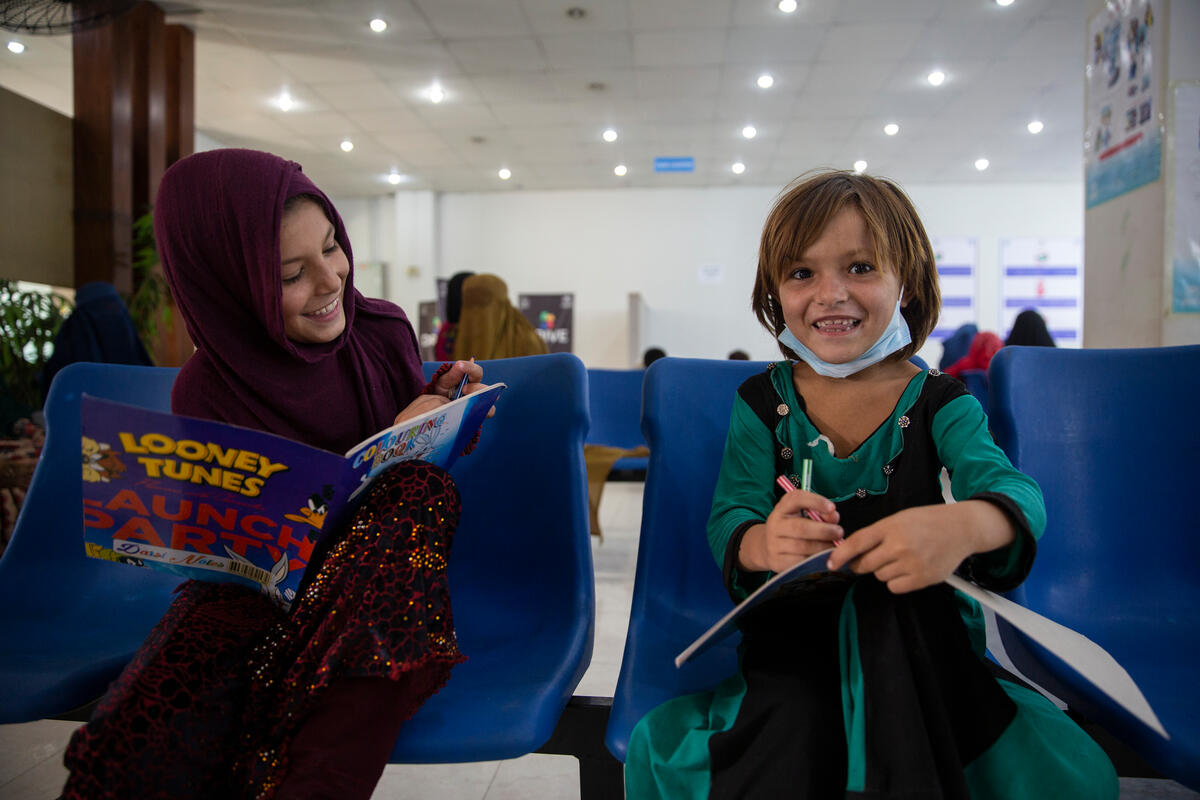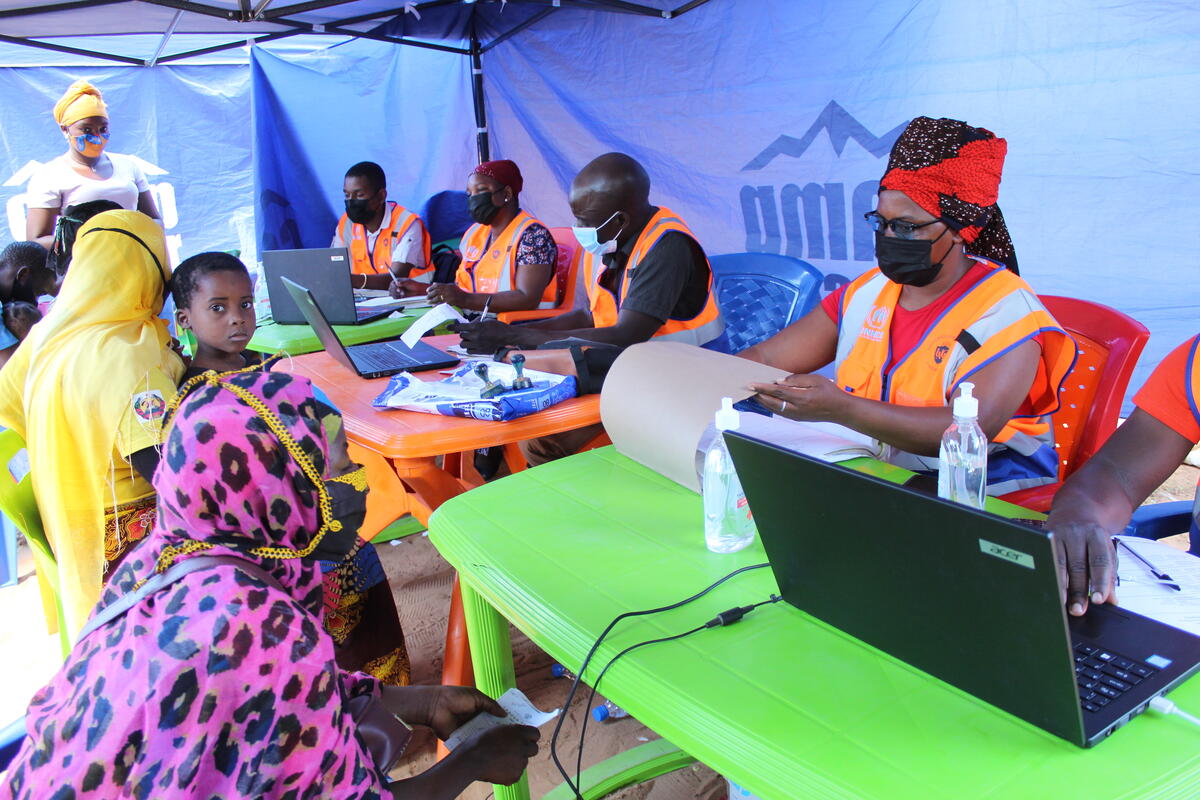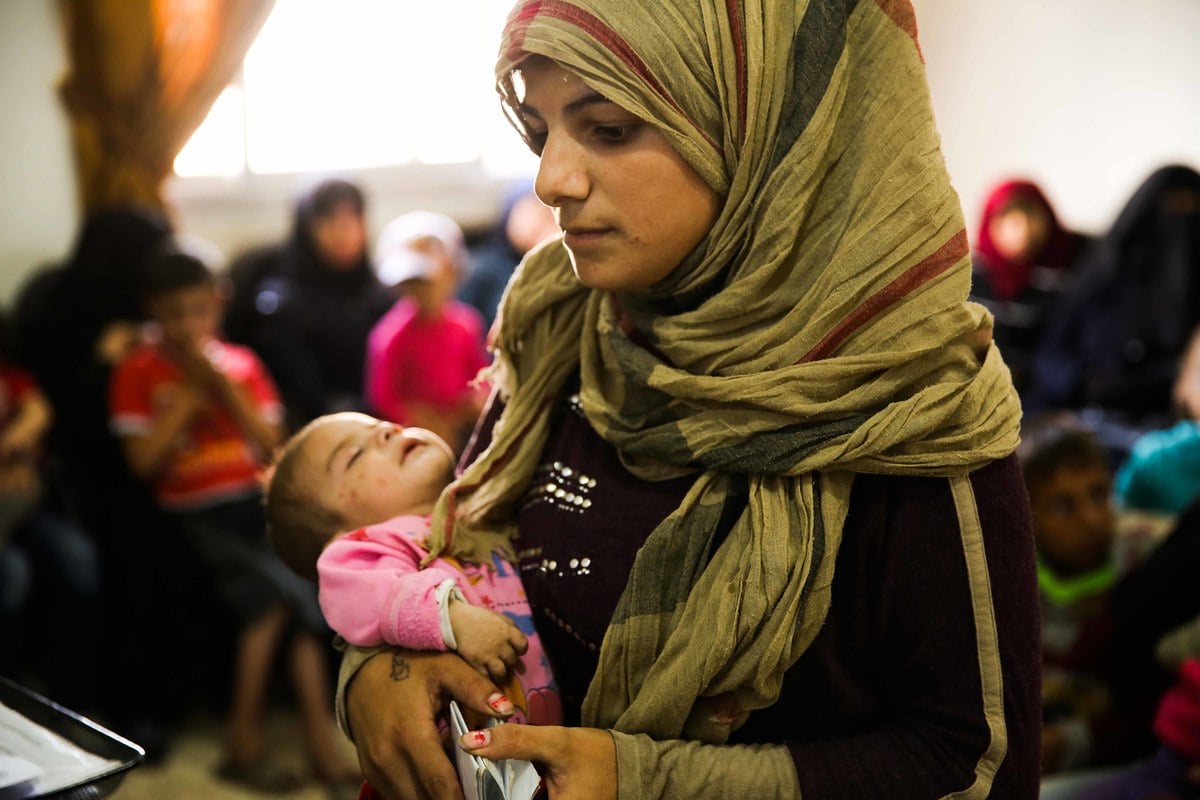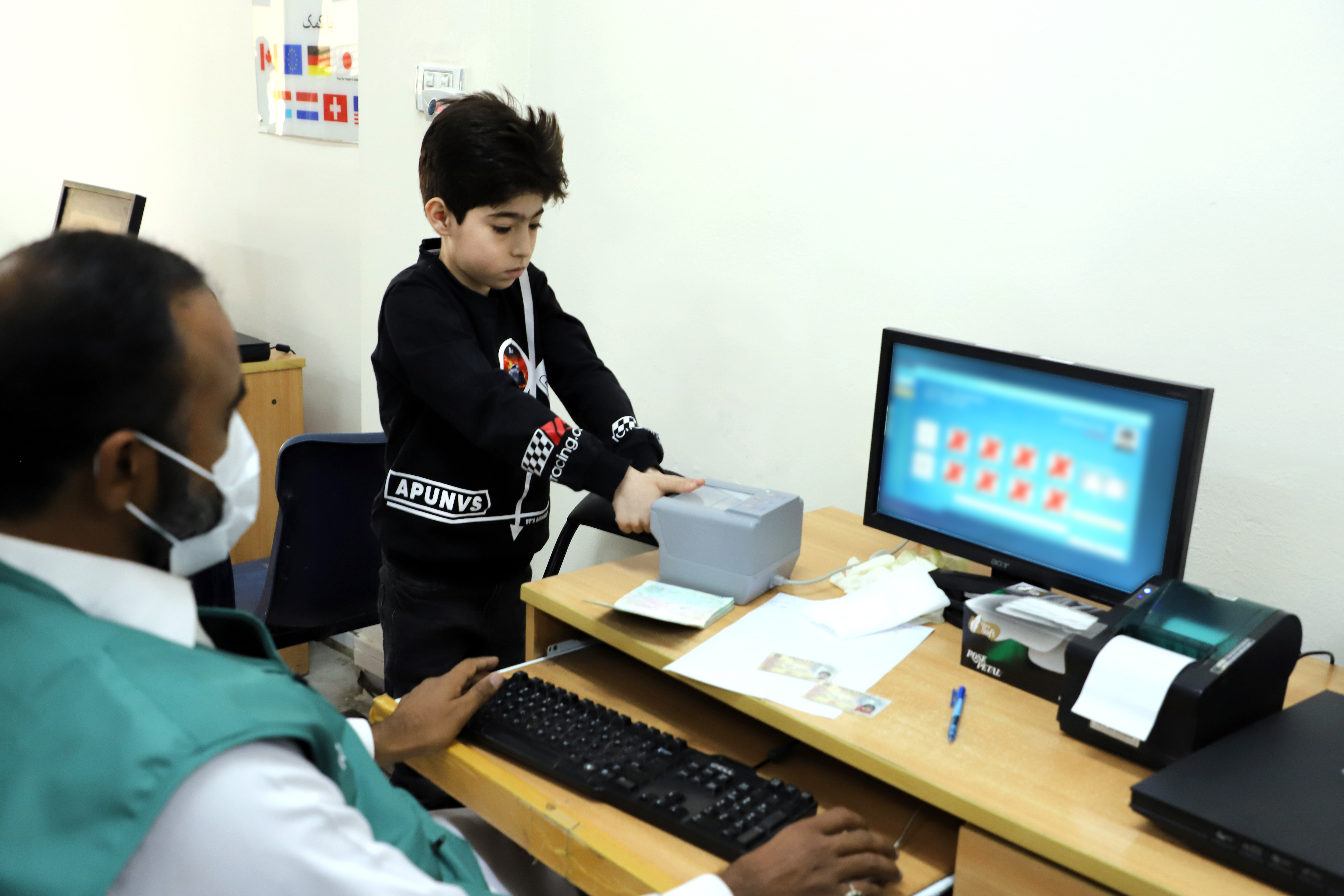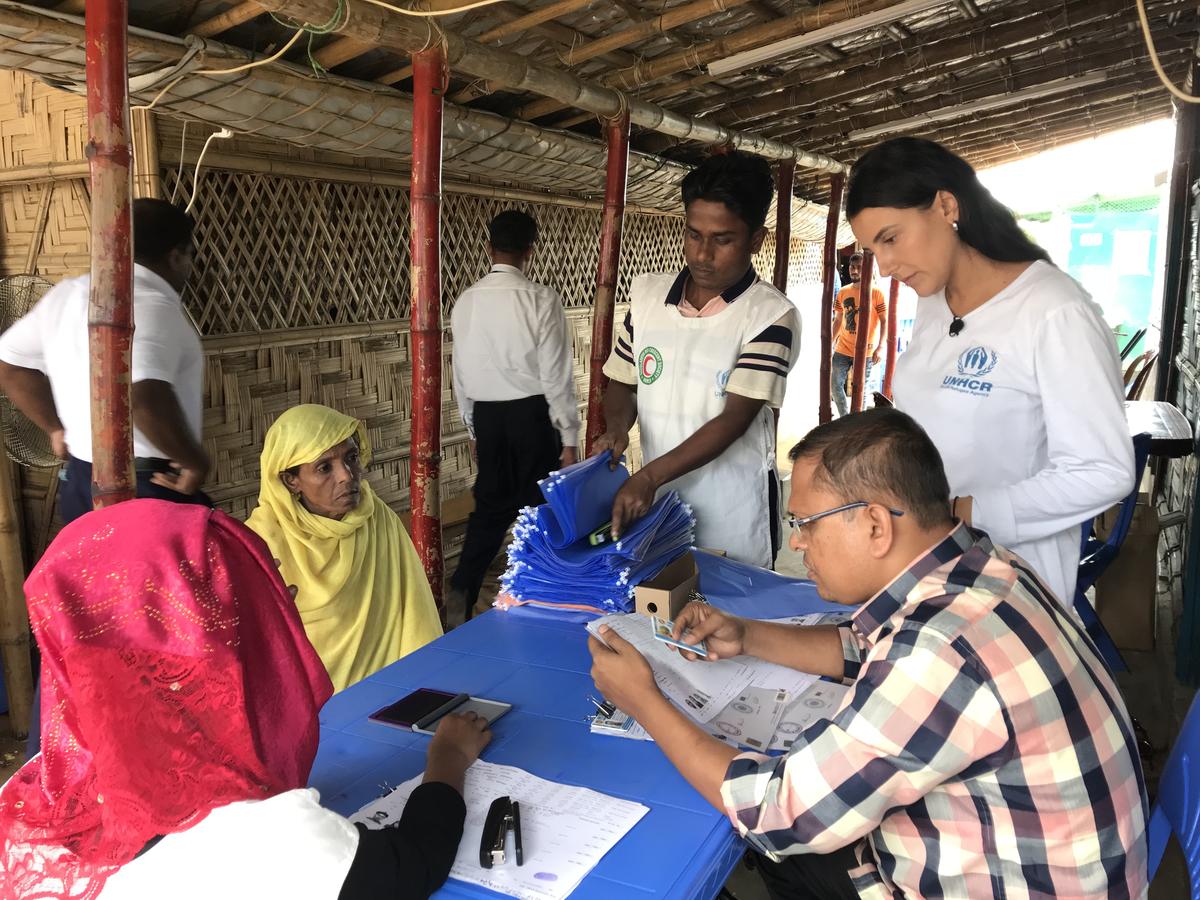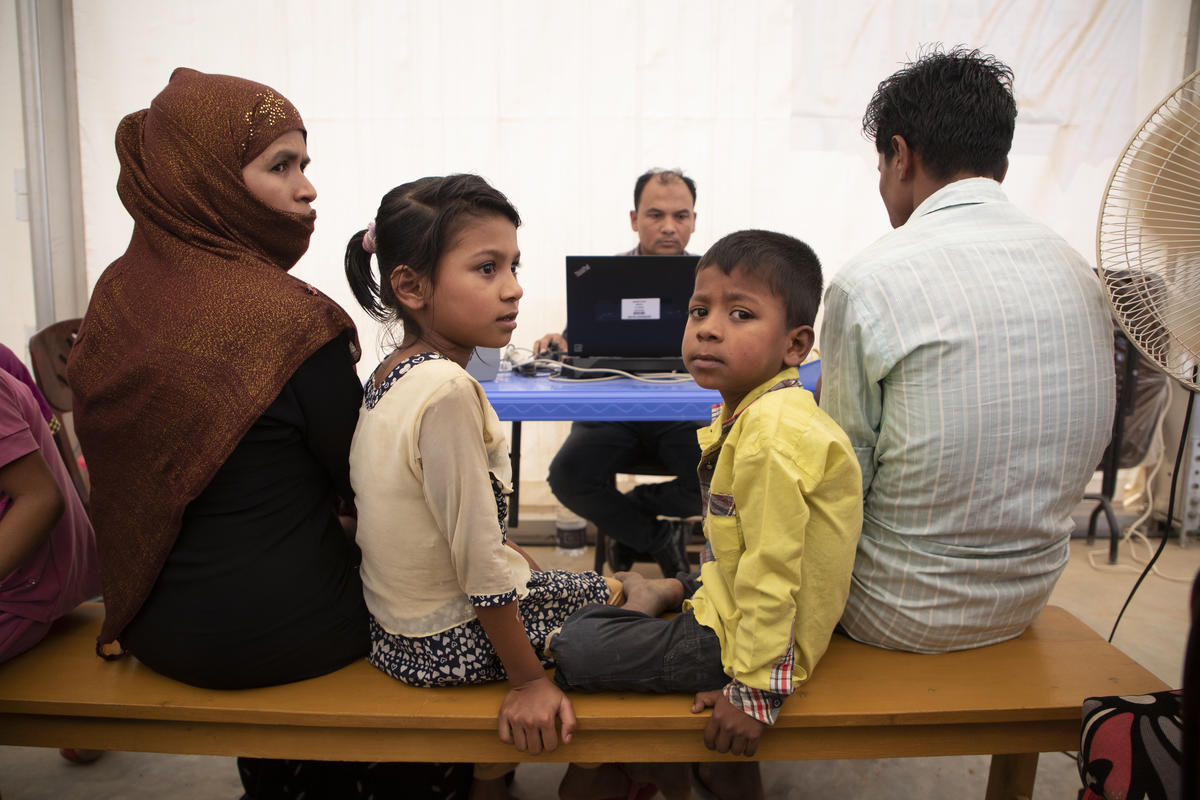UNHCR begins registration of DRC refugees in northern Congo
UNHCR begins registration of DRC refugees in northern Congo
We begin today the registration of more than 100,000 refugees who fled ethnic conflict in the Equateur province in north-west Democratic Republic of the Congo (DRC) since November last year.
The exercise kicks off in Betou district of Lukouala region in northern Republic of Congo (ROC), an area hosting more than 60 percent of the estimated 107,000 DRC refugees. The rest are scattered in the district of Impfondo, southern Likouala.
The registration is designed to ascertain the number of refugees and to properly identify them. We will also be profiling refugee families to determine their specific needs and cater our assistance programs accordingly.
A joint team of 50 people - comprising UNHCR staff and local authorities - is carrying out the registration on a 500 kilometres long stretch of territory along the Oubangui River. The operation, which took several weeks to prepare, is logistically challenging as the overwhelming majority of the DRC refugees are in areas that can be reached only by boats. The water levels are receding and we are running against time to complete the registration within two months before the dry season sets in and rivers become too low for navigation.
Meanwhile, we are continuing to deliver emergency assistance to the widely dispersed refugees. Despite the logistical challenges, so far we were able to ferry 161 metric tons of aid material for some 50,000 refugees. This aid includes blankets, plastic sheeting for shelter, kitchen sets, sleeping mats, mosquito nets, which are being handed to the most vulnerable as a matter of priority. With continuing instability throughout most of the Equateur province, many refugees are telling UNHCR that they are not ready to return home soon.
Meanwhile, in the Central African Republic (CAR) where another 18,000 refugees from the Equateur province sought safety, our teams have completed registration in late December and continue to register new arrivals trickling in from the Libenge area.
Back in the Equateur province, UNHCR is taking part in an inter-agency humanitarian assessment mission to identify the needs of an estimated 90,000 internally displaced people affected by the recent ethnic violence and tensions.


